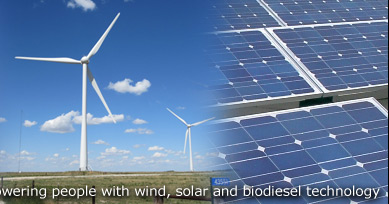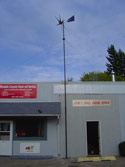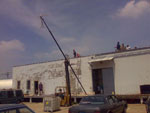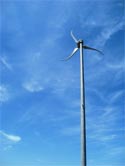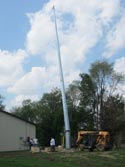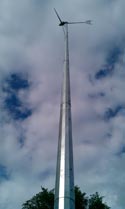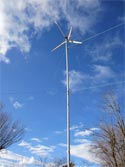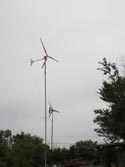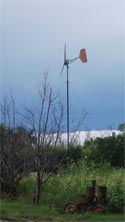Small Wind (10kW and below):
Nebraska Renewable Energy Systems (NRES) is different from other suppliers of wind energy devices. NRES looks to primarily work with systems designed to increase energy self-reliance by consuming that energy which is produced on site. The types of systems that NRES uses are back-up/ remote power systems, hybrid and also on-grid systems. For more information on these please contact us. The equipment is sized from 4.2kW and is typically priced at $6-$8/watt. On the energy farm we utilize about 6500 watts of wind winery. They are both newer turbines, installed in 2011 and 2012.
Firstly, the NRES process model begins at the "define/assessment" phase; an energy quote and energy survey are completed. The assessment portion of the program looks at current power usages, opportunities for efficiency improvements and physical sighting of the equipment chosen to generate electricity. Experience with local zoning laws will also be used to help determine the best solution for the application. Zoning is often the most significant limiting factor for these applications. NRES offers renewable energy law consultation services when individuals are working with the local REAs.
Following the initial phase of assessment, a proposal is generated based on the survey findings and stated renewable energy goals. This proposal will include several options that are best suited for the application. Once agreed upon, system components are obtained and assembled and any zoning issues are processed. A negotiated deposit is generally required at this point.
Once all components are obtained according to the proposal selection, the system is installed as designed. Installation will occur in one to several visits based on system complexity. Once commissioned, the unit is turned over to the owner and maintenance training is completed. Service programs will be available through NRES if desired and will be designed to support efficient operation of the unit. NRES specializes in stand alone off-grid and hyrbrid systems on a remote power scale.
Because of the irregularity of wind energy, small scale systems use DC charging to store power so battery banks can absorb these energy spikes for later use when the wind is not blowing. This energy is then converted to AC as needed or used as DC.
The small, DC charging wind systems we utilize are designed to replace retail power consumption. This provides greatest value and return. These systems also provide a low cost, renewable back up for power outages. Excess power must also be 'dumped' when everything is full and is typically sent to a heating use. The fact that there is any significant excess power indicates the wind system was not designed to fully utilize and capture the available energy.
Large Wind (10kW and up):
Larger systems generally do not store power in this fashion because of the costs involved, though a battery bank can be maintained for a portion of that power if desired (a hybrid system). Larger systems are not net metered, they sell electricity to the electric company through a power purchase agreement with the power company. Electric utilities are required to buy this power back thanks to federal PURPA law.
NRES is one of very few people in Nebraska that are generating DC power and using renewable energy directly to support business locations. This has been a very rewarding, but difficult road. The lessons learned and the experience born from these self designed and installed systems will be used to great advantage for NRES and future clients.
Our office location is in Lyons, Nebraska as well as our energy demonstration farm. Consider NRES if you are ready to utilize decentralized power systems.
To learn more about small wind systems, view Southwest Windpower's Small Wind Electric Systems Guide.
Please contact NRES for more information.
Nebraskans for Fair Net Metering Petition
Videos
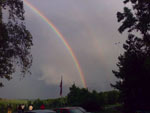
|
Wind Turbine
Quicktime Movie 593 Kb Download |

